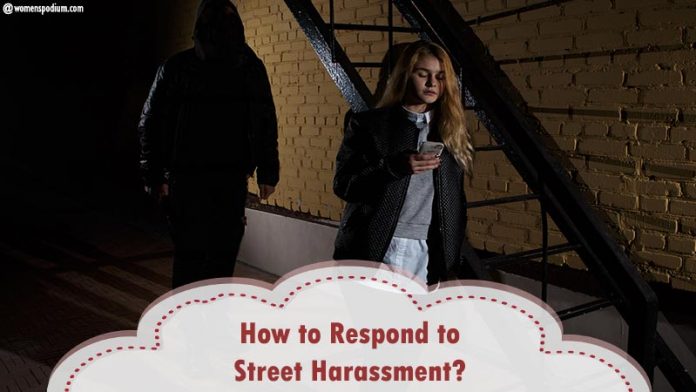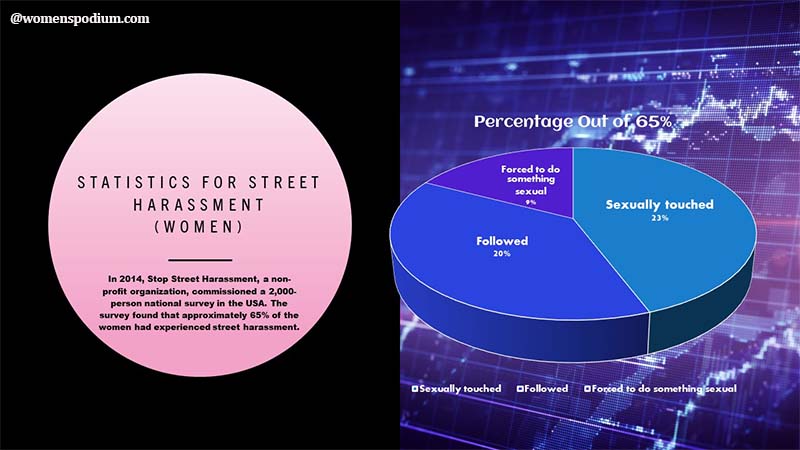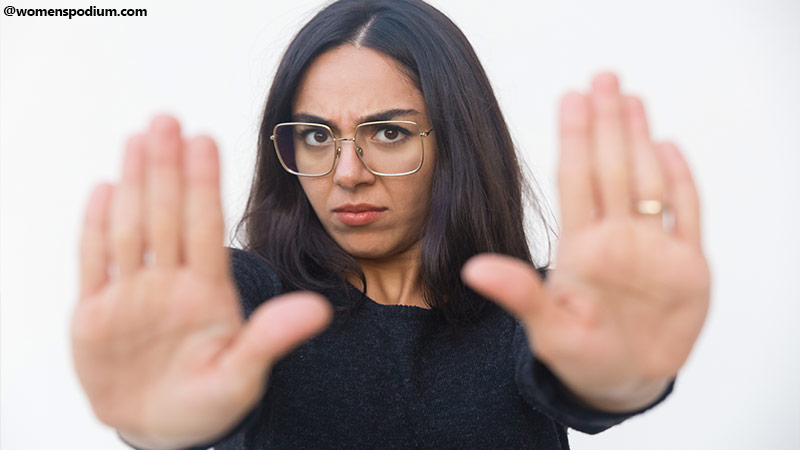
It’s sad, but street harassment is a term most of us are familiar with. Whether it is women, people of color, gender discrimination or sexism, religious bias, or even just physical appearance, people on the street love to express their opinion, even if it is uncalled for or irrelevant. In fact, some go as far as sexual harassment in public, with seemingly no fear from the authorities. Many women have faced catcalling so many times that some of them actually brush it off as “normal”. If you have been prey to catcallers and have had enough, here’s how to respond to these harassers without putting yourself in a dangerous situation.
What Qualifies as Street Harassment?

Anything that makes you feel uncomfortable or unsafe on the street falls under the umbrella term of Street Harassment. It includes, but is not limited to:
- Slur words based on appearance, race, religion, gender or sex.
- Vulgar or rude gestures directed towards you, often sexual in nature
- Abelist, sexist or transphobic comments
- Threats of physical harm and violence
- Following, whistling, catcalling, kissing noises or blocking your path
- Attempting to touch you, or grab you sexually or otherwise
- Flashing you, exposing themselves, leering at you
While these are just a few examples, really, almost anything that makes you feel uncomfortable, or makes you worry about your safety, can qualify as sexual harassment.
Some Statistics For Street Harassment

While no women need street harassment statistics to know that it is a rampant occurrence with severe consequences, almost all women have been victims of street harassment in one way or another.
In 2014, Stop Street Harassment, a non-profit organization, commissioned a 2,000-person national survey in the USA. The survey found that approximately 65% of the women had experienced street harassment. Among these, 23% had been sexually touched, 20% had been followed, and 9% had been forced to do something sexual. Among the men, 25% had been street harassed or had their modesty offended (a higher percentage of LGBT-identified men than heterosexual men reported this). Their most common form of harassment was homophobic or transphobic slurs (9%).

So, How Do You Deal With Street Harassment?
Ignore it

Yes, we know this is an oxymoron. How does ignoring it count as a response? Well, it does. At times, and this is usually the case, catcalling and street harassment happens in secluded areas. Especially the ones that are more severe or too close to sexual harassment in nature. Ignoring it is one of the best ways to avoid street harassment from escalating out of hand.
When something like this happens to you, and you are in an area that could be potentially unsafe: Just, ignore it. We know it is easier said than done when that bubble of anger rises in your chest cavity. But at that moment, it is your safety that matters more than your modesty. Just walk away, and get out of there as soon as possible.
Establish a Boundary

(If you want something less sarcastic, skip to the next one)
- If you are in a public space that is a little more crowded, or if you have a few people with you who make you feel safe, respond. Start by establishing a boundary. Confront your harasser head-on, and tell them to stop doing what makes you uncomfortable.
- If it was a verbal comment, say something like, “Please do not talk to me like that.” or “I do not appreciate a comment like that.”
- If it was an action, tell them that it is inappropriate and that you were uncomfortable.
Hey, we know being this polite sounds unnecessary when you are confronting scum. But start with giving them the benefit of the doubt. While they rarely deserve it, if you start with a nier approach, maybe you could coax an apology out of them. Who knows, if things go really well, perhaps they would never do it again, right?
Go Subtle

If you’re not one for words, use some more subtle ways of communicating your anger. Stare them down until they look away, embarrassed. This way, you aren’t engaging verbally, but they know exactly what they’ve done and that it isn’t funny.
If your eyes are too subtle to do the trick, just flip them off. It’s a universal sign that everyone understands, no matter what country or language. It will get your message across loud and clear without you having even to open your mouth. And at the same time, you will have the mental satisfaction of having responded and not fallen prey to your street harassers.
Also Read: If you want to travel alone, travel to solo-friendly locations considering your safety first and ensure to install a few safety apps on your phone.
Document it

Listen, lewd comments and gestures are something that drives every woman mad with rage. We have had enough of us being underestimated and looked down upon by our own family and friends. So taking shit from strangers on the street is, nicely put, unacceptable. So record it on your phone, or camera, or any other device with the ability to capture videos.
Chances are, if they see you recording, they will stop. If not, you now have physical evidence of what happened, and you can file a police complaint. Don’t let them go easily. What happened to you is sadly common, but that does not mean it is okay.
Bring Other People Into The Situation

Engage bystanders you think might help you out. Maybe other women or the local authorities that stand around. Tell them what’s going on and what they can do to help. Even something like, “The man in the blue shirt is following me, will you walk with me for a while?” can do wonders at making you feel safer. If you feel comfortable, ask the other to engage with your harasser and confront them. After all, it is always safer in a crowd.
Share your story

People forget that street harassment can have long-term repercussions as well. It can instill a deep-rooted fear in people and cause anxiety, depression, or post-traumatic stress disorders. Street Harassment isn’t just what happens on the street. It is also what follows. One way to reduce these repercussions is by talking about what happened.
Whether it is anonymous, through the internet and social media, or directly to your close friends and family, talking about what happens can help. It helps you lighten the load and get advice from your family or close friends on how to respond if it happens to you again. Other than that, just knowing the fact that you have people around you who care and support your safety can do so much for you. You will be left feeling safer, less scared, and more in control of the situation.
Street Harassment is NEVER your Fault

A lot of people tend to blame the victim when crimes like these come to light. They question a woman’s character, what clothes she was wearing, who she was with, where she was, and at what time, and what she was doing. As if to justify that what happened to her was somehow her own fault. Because of this culture of victim-blaming, many women begin to think that it is indeed their fault. Please remember, it is not.
You do you, girl! You did absolutely nothing wrong; no matter the place, the clothes, or the time, street harassment is still unacceptable; it is never the victim’s fault. The harassers chose to behave in the way that they did. This one’s on them and never on you.
Beautiful Advert on Street Harassment – STAND UP Let’s Act Together Against Street Harassment
I would love to conclude my article with this L’Oréal Paris ad on street harassment and how to respond to it. Their iconic tagline, “Because you are worth it,” gives the courage to every woman to fight against any injustice. Street harassment is an assault on a woman’s dignity; it leaves a woman feel disgusted and is enough to snatch her self-worth and confidence. This ad primarily focuses on bystanders who witness street harassment incidents to come forward and intervene to help the victim.
Street Harassment is widespread, and really, there’s not much that has been done about it. The laws regarding it are weak and do much too little to punish the offender. Street Harassment all boils down to our existing patriarchal society—women are made to feel small and vulnerable, while the men feed off this fear. While it is empowering to respond and not tolerate this harassment, responding can often put you in grave danger.
Most women have a strong gut feeling when it comes to situations like these. So you must trust your instinct and go with whatever makes you feel the most comfortable and safe. Street harassment is not a joke, and we don’t find it funny. So any men here reading this, please stop.
Sincerely,
All of womankind
Also Read: It’s not about safe or unsafe destinations; anything can happen anywhere, but you can’t stay put. However, for women, traveling alone is quite a daunting task.





